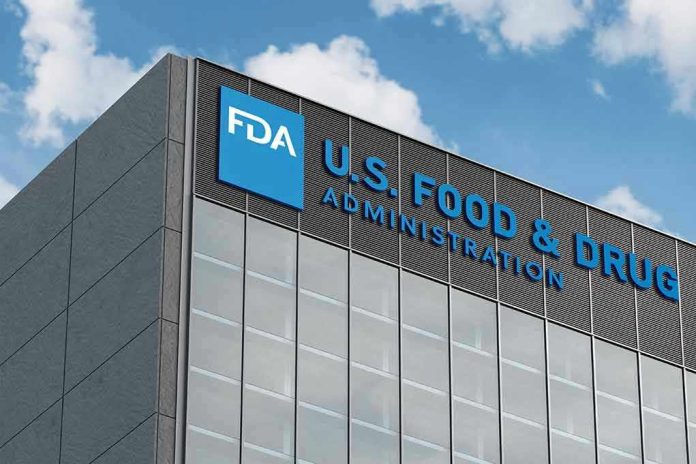
When a blood pressure pill trusted by millions is quietly yanked from pharmacy shelves for containing a cancer-causing impurity, the real shock isn’t just the recall—it’s what this says about the hidden risks in our medicine cabinets.
Story Snapshot
- The FDA recalled over 580,000 bottles of prazosin hydrochloride due to a carcinogenic impurity.
- No public press release was issued; the recall was announced via the FDA’s Enforcement Report.
- The contamination is a manufacturing byproduct, not an intentional ingredient.
- This event highlights urgent questions about pharmaceutical oversight and patient safety.
580,000 Bottles Pulled—A Quiet Crisis in Medicine Safety
In October 2025, an FDA Enforcement Report revealed a far-reaching recall of prazosin hydrochloride capsules—1 mg, 2 mg, and 5 mg—manufactured by Teva Pharmaceuticals. Over half a million bottles were flagged after routine testing found elevated levels of N-nitroso prazosin impurity C, a compound with carcinogenic potential. The recall’s Class II status signals risk for temporary or medically reversible health consequences, but the scale and stealth of the action has left patients and providers scrambling for answers.
While the FDA quietly posted the recall online, no public statement or press release followed. Pharmacies and doctors received notice, but most patients only learned of the risk through scattered media reports or direct communication from their healthcare providers. For Americans relying on prazosin for hypertension, PTSD, or other chronic conditions, the sudden withdrawal of their medication raised immediate anxieties—and revealed how fragile trust in pharmaceutical safety can be.
Carcinogenic Contaminants—A Recurring Threat
Prazosin is not the first blood pressure drug to face a recall for nitrosamine contamination. Since 2018, the FDA has dealt with similar carcinogenic impurities in other antihypertensives, including valsartan and losartan. These nitrosamines are unintended byproducts in pharmaceutical manufacturing, surfacing when chemical processes go awry or are insufficiently controlled. The FDA’s Carcinogenic Potency Categorization Approach sets strict limits on such impurities, but repeated discoveries suggest deeper issues in quality assurance and oversight.
Teva Pharmaceuticals, responsible for the recalled product, faces mounting pressure to explain how the impurity escaped detection and what steps will be taken to prevent recurrence. For the FDA, each recall underscores both the importance of vigilant enforcement and the challenge of ensuring safe drug supplies in an industry where global supply chains and complex chemistry collide.
Patient Impact—Disruption, Anxiety, and the Burden on Providers
Patients prescribed prazosin found themselves caught in a web of uncertainty. Should they stop their medication? Is there an alternative? Abrupt discontinuation can be dangerous, especially for those managing hypertension or PTSD. Medical experts urge patients not to halt treatment without consulting their healthcare provider, yet the recall’s low-profile announcement left many in the dark.
Healthcare providers, meanwhile, face the logistical headache of identifying affected lots, recommending substitutes, and reassuring anxious patients. Pharmacies must process returns and replacements, often without clear guidance. The disruption is immediate and personal for thousands, but the broader lesson is systemic: the safety net for drug recalls is only as strong as the communication and coordination among regulators, manufacturers, and frontline providers.
Regulatory Oversight and Industry Reform—Lessons from the Recall
This prazosin recall is another warning for the pharmaceutical industry: the risks of carcinogenic impurities are not isolated events, but recurring challenges demanding ongoing vigilance. The FDA’s enforcement actions are necessary but reactive, and the lack of public-facing communication is a vulnerability—one that can undermine trust when safety is at stake.
Long-term, the recall is likely to prompt even stricter scrutiny of manufacturing processes, more robust testing for nitrosamine contaminants, and louder calls for transparency. For Teva Pharmaceuticals and its peers, reputational damage and financial liability are real consequences. For patients and providers, the incident is a stark reminder that the journey from molecule to medicine is fraught with unseen hazards—and that regulatory oversight must evolve to keep pace.



